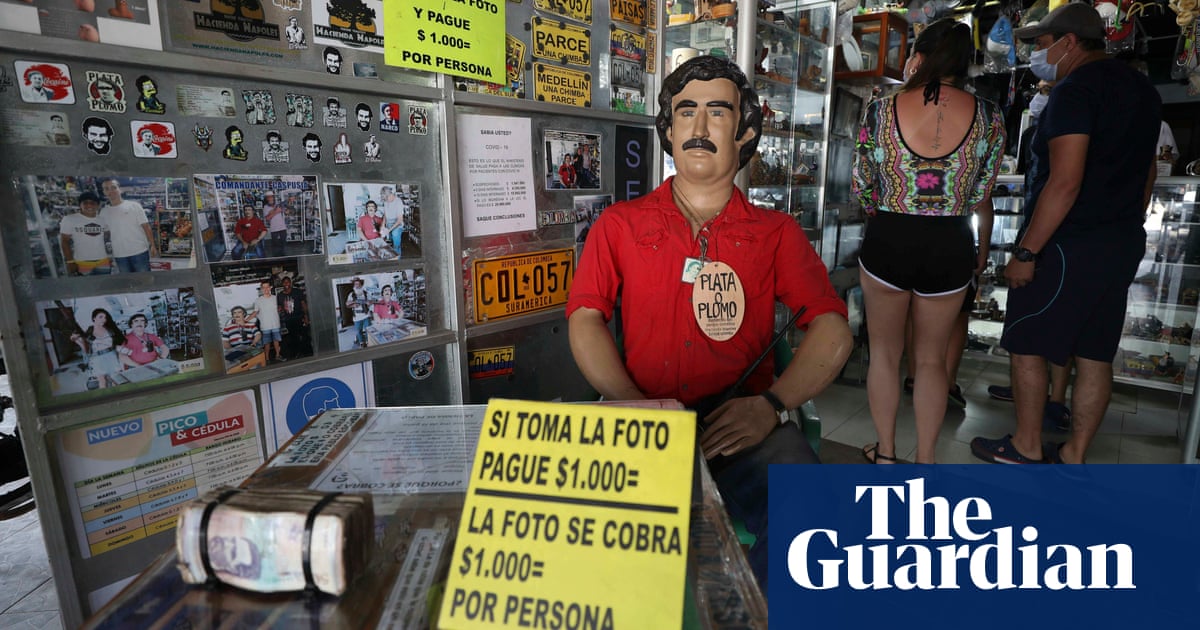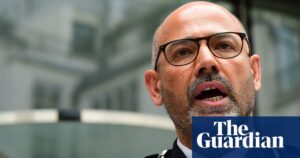
Souvenirs depicting the late Colombian drug lord Pablo Escobar could be banned in Colombia if legislators approve a bill introduced this week in the nation’s congress. The proposal is criticized by vendors who sell his merchandise to tourists from around the world, but backed by those who believe the country should shed its image of mafia bosses.
The bill proposes fines of up to $170 for vendors who sell merchandise that depicts Escobar and other convicted criminals, and would also enable police to fine those who wear T-shirts, hats and other garments that “exalt” the infamous drug lord.
“These items are revictimizing people who were victims of murderers,” said Cristian Avendaño, a representative from Colombia’s Green Alliance party who drafted the bill.
“We must protect the right of the victims to recover … and find other symbols for our country.”
The proposal has been widely covered by newspapers in Colombia, where Escobar is seen as a murderous figure, linked to one of the most violent periods in the nation’s history.
At the same time, the drug trafficker’s image is also heavily commercialized by locals who are eager to cash in on the growing fascination with the drug lord, among some tourists from North America, Europe and other Latin American countries.
Souvenir vendors in Bogotá’s historic La Candelaria neighborhood said they were opposed to the initiative, which has been criticized for attempting to limit freedom of speech.
“I think it’s a dumb law,” said Rafael Nieto, a street vendor who sells magnets and T-shirts with Pablo Escobar’s face on them, as well as more traditional souvenirs.
Nieto said he would stop selling Escobar merchandise if the bill is approved, to “avoid problems” with police.
But he added: “It’s not a trend that I came up with … the Mexicans, the Costa Ricans, the Americans are always asking me for Escobar” merchandise.
Escobar ordered the murders of an estimated 4,000 people in the 1980s and early 1990s, as he established the powerful Medellín cartel and amassed a $3bn fortune that made him one of the world’s richest people at the time.
The drug lord was gunned down in 1993 on a rooftop in Medellín, as he tried to escape from the search block, a unit of more than 300 police officers backed by Drug Enforcement Administration (DEA) agents that was dedicated exclusively to capture him.
In recent years, Escobar’s life has returned to the spotlight in a Colombian soap opera and a Netflix series.
In his hometown of Medellín, agencies lead visitors on historical tours that stop at sites related to Escobar’s life.
Avendaño said it was time for Colombia to shed its image as a country of mafia bosses.
“We cannot continue to praise these people, and act as if their crimes were acceptable,” Avandaño said. “There are other ways for businesses to grow and other ways to sell Colombia to the world.”
The bill must go through four debates to be approved by congress, Avendaño explained, adding that if the legislation passes, there will be a “transition period” where government officials work with souvenir vendors.
Last year Colombia refused a request to trademark the Pablo Escobar name, filed by his widow and children, to sell what they described as educational and leisure products.
The General Court of the European Union denied a similar trademark request by Escobar’s family earlier this year, arguing that it went against “public policy and accepted principles of morality”.
Source: theguardian.com

















